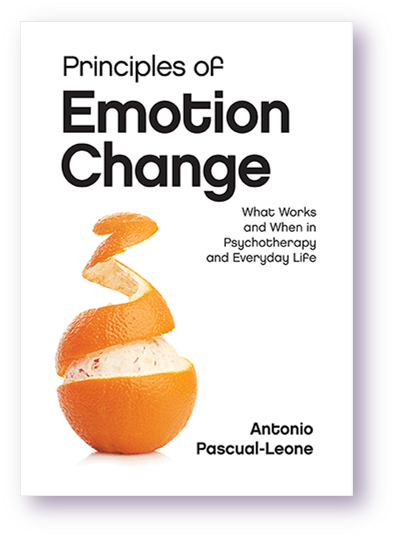Keynotes
Dr. Antonio Pascual-Leone
9.45-11.00 uur (deel 1)
Principles of emotion change: A guide for experiential therapists
Therapists working experientially are at the forefront of the growing emphasis on working with emotion in psychotherapy. Despite the widespread use of terms like 'emotional processing' and 'regulation', these concepts remain poorly defined and inconsistently applied across therapeutic approaches. Those already working experientially, however, have been pioneers in this area, influencing other treatment approaches. Still, given the increasing number of interventions and hybrid approaches, it's timely to refocus on core principles to simplify treatment.
This lecture will address three key questions: (1) What are the distinct forms of 'emotional processing'? (2) What pathways facilitate emotional change? (3) Which processes are best suited to working with which specific types of client emotions?
First, Dr. Pascual-Leone will outline five ways of working with emotion: (a) emotional engagement and awareness, (b) expression and emotional arousal, (c) down-regulating intensity, (d) sequential transformations in emotional patterns, and (e) narrative reframing and existential insights. Second, he will match specific kinds of emotions (secondary, primary adaptive or maladaptive, and instrumental) to the processes that most effectively promote change. Third, the lecture highlights practice implications of recent research. Based on a recent APA book (2025) hailed as an "integrative masterpiece" and "contemporary classic", this lecture will highlight practice implications for working within sessions, consider EFT's contributions, and explore the future of psychotherapy.
15.30-16.45 uur (deel 2)
Microskills in working with emotion
Learning to discriminate between different kinds of emotions is a key practical skill for therapists who want to work experientially. While therapists often learn interventions from textbooks and lectures, reading what is happening within the session is usually only taught from watching video examples. This lecture will use video examples and focus on practical skills training to help participants learn the difference between kinds of emotion.
VPeP-congres 'Van inspiratie naar innovatie'
 Registratiewebsite voor VPeP-congres 'Van inspiratie naar innovatie'
Registratiewebsite voor VPeP-congres 'Van inspiratie naar innovatie'VPeP-congres 'Van inspiratie naar innovatie'wiesverheul@vpep.nl
VPeP-congres 'Van inspiratie naar innovatie'wiesverheul@vpep.nlhttps://www.aanmelder.nl/van-inspiratie-naar-innovatie
2025-11-20
2025-11-20
OfflineEventAttendanceMode
EventScheduled
VPeP-congres 'Van inspiratie naar innovatie'VPeP-congres 'Van inspiratie naar innovatie'0.00EUROnlineOnly2019-01-01T00:00:00Z
Nog niet bekendNog niet bekend
